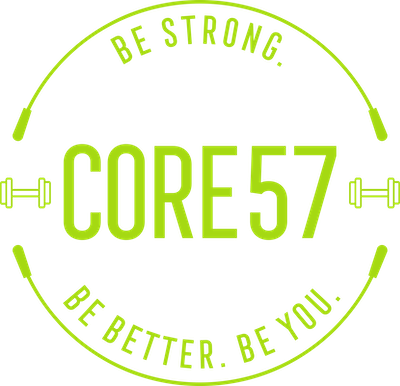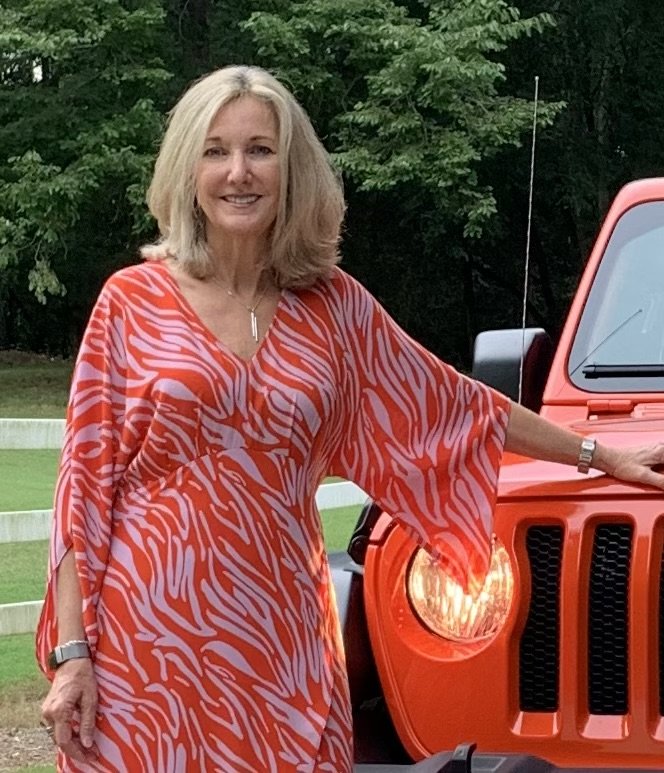Survivor Spotlight: Julie Seitz
A well-rounded fitness plan is about more than the individual. It is about a supportive, health-conscious community as well, and that’s why community is one of our 7 Foundations of fitness. This Breast Cancer Awareness month, we are asking some of the breast cancer survivors in the CORE57 community to share their experiences and the lessons they learned along the way about community and wellness.
Julie’s Story
Julie Setiz, a member of CORE57, has proven herself to be a true warrior. A three-time cancer survivor, Julie's journey, particularly her battle with breast cancer, is a testament to resilience and the power of a positive mindset.
Could you share a brief overview of your journey with breast cancer? What were some of the biggest challenges, and how did you overcome them?
I am an 11-year breast cancer survivor. This was my second cancer diagnosis, as I had been treated for thyroid cancer just four months earlier in 2012. And unfortunately, I had a third cancer journey last year. These experiences have made me more of an expert than I ever wanted to be. However, they've also changed my perspective on life. I am now more determined to make the most out of every day and strive to make more of a difference with the time I have on earth.
When it comes to breast cancer, I was always diligent about getting my mammograms. But I wasn't as consistent with my self-exams. In March 2012, during one of these self-exams, I felt something different on the right side of my breast. It didn't cause any pain, and it was very small. When I had my mammogram, the results came back normal. But, I learned my first cancer lesson: always listen to your body, and don't let any professional talk you out of it. I insisted on further testing, which revealed an abnormality.
The second lesson I learned was the importance of seeking the best possible medical care when dealing with a potentially significant health issue. I called every doctor I knew to find the best breast specialist, leading to a biopsy and MRI that confirmed my diagnosis. Fortunately, I caught it early, and I underwent a less-invasive lumpectomy, 30 days of radiation, and 10 years of an estrogen-blocking drug to ward off reoccurrences. I've been clean from this today, with no long-term side effects, except for mismatched breasts - but that's easily disguised with clothing.
In 2012, the biggest challenge was mental rather than physical. Having two diagnoses - thyroid and breast cancer - so close together was tough. Over the past 11 years, I stayed focused on my health, prioritizing medical appointments above all else. I have prioritized all doctor appointments over any work commitment and had my own countdown clock looking forward to that 10-year mark.
The third lesson I learned is that it is as much a mindset game as a physical one. The key is not to give it more power over you than it deserves, which is not much at all!
How has your perspective on health, wellness, and fitness changed since your diagnosis and treatment?
My perspective on health, wellness, and fitness has significantly changed since my diagnosis and treatment. In 2012, I was in "okay" shape, but my high-pressure cooker executive job often took precedence over my health as I worked 60 hours a week and traveled heavily. After my third cancer diagnosis, I prioritized my lifetime fitness and wellness, to the degree that I can control. I know that when someone is diagnosed with cancer, the better shape you’re in at the beginning, and staying as active as you can throughout the journey, will make a tremendous difference in how quickly you will rise back up. I am extremely grateful to the staff at CORE57 for the support everyone gave me last year and encouraged me to keep moving as best as I could through the rough patches.
Can you share any specific workouts, classes, or personal training sessions that have particularly helped you regain strength and confidence during/after your treatment?
Of course, there are many different courses of treatment depending on the diagnosis. So first, do what your medical providers suggest. But also make sure they know that you want to regain strength and mobility quickly. Partner with them and the experts at CORE57 to create a plan that works for you. I relied heavily on personal training sessions during my treatment, as my needs and abilities varied from week to week.
The fourth lesson I learned is that cancer is unpredictable. You cannot predict ahead of time exactly how your journey will go. Cancer is like an onion — the layers are pulled back one at a time. Where you are and what you need will vary from diagnosis to treatment and throughout your recovery.
How has being a part of the CORE57 community impacted your journey toward recovery and overall well-being?
I've been a member of many different gyms in my life, from large chains to corporate gyms. I truly feel I have experienced the benefits of this special CORE57 community. It was so important to have the support from Chandalyn, Rebecca, Kolleen, Tammy, and the rest of the team to provide expert nutritional and fitness advice as I made my way through last year’s setback. They were always there for a hug and created special workouts that have helped me bounce back.
For example, Rebecca, CORE57’s nutrition coach, connected me with the best protein powder and electrolytes to supplement my food intake during treatment.
The fifth lesson is that you need a well-rounded support team. Not just your doctors, but also fitness experts and a supportive community. To help others going through similar experiences, I plan to launch a non-profit that provides a support structure for newly diagnosed patients, beyond what the medical community offers.
None of us know when cancer may raise its ugly head, so staying vigilant and as healthy as possible is so critical, and you can help that by relying on the experts around you to support and guide you.
What advice would you give to other women facing similar challenges?
Lesson number six: Cancer doesn't end on the day of your last treatment. Even once you’ve lived through this disease, it lingers in your thoughts as you count down to your next scan, grappling with "scanxiety" while keeping your fingers crossed for clear results. Friends and family may find solace knowing your treatment has ended, but it's important to let them know what type of long-term support you need as you move down the road to your new "normal."
If you're newly diagnosed, don't hesitate to reach out. Connect with your network, talk to former patients, find the best medical care, and quickly assemble your support team. Remember, you're not alone in this fight. I'm more than willing to lend an ear to anyone confronted with a cancer diagnosis.
Rely on the CORE57 Community
Thank you, Julie, for your courage in sharing your personal journey, and in reminding us all of the power of resilience, community, and the importance of prioritizing our health. Learn how the CORE57 community can help you through whatever challenges you’re facing through personalized coaching and support.

